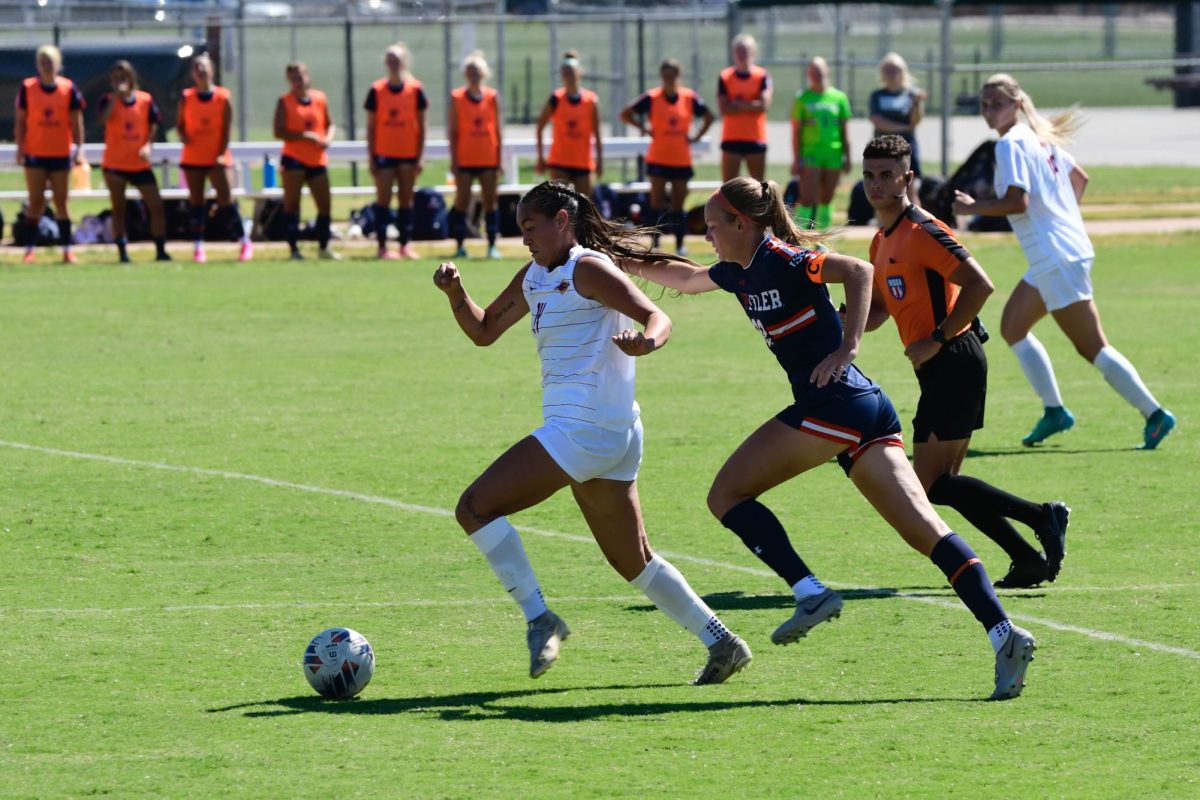Homecoming nominees must meet new requirements this year if they expect to take the crown due to alleged cheating that took place during last year’s elections.
“This is a test pilot year,” Phillip Mundine, senior in mass communication and by-law co-chair said.
Last year, nominees from Sigma Kappa were allegedly caught asking students for their M-numbers to vote in the election.
Graduate Renee DuBois exposed text messages that were sent to students asking them for their numbers, resulting in the exposure of the alleged vote rigging.
However, there was uproar on campus as to whether or not the reporting of the situation was true.
“There was no proof,” Melody Coffey, SGA president said.
As a precaution to any future cheating, Student Senate bill No.20130 has now taken effect. The bill, which was created by SGA executives Phillip Mundine and Rebecca Stogner of the Student Senate By-Laws Committee, states that it will take more than just a popular vote to win.
Last year’s homecoming queen and member of Sigma Kappa, Lacy Talley, and Renee DuBois declined to comment on the changes made to this year’s election.
However, one member of Sigma Kappa said she feels the new bill will have little to no effect on the election process.
“It’s a popularity contest,” Margaret Kruder, senior in mass communication and member of Sigma Kappa said. “There’s no way around it. People were upset because they didn’t win. That’s why they changed it. They changed the rules because people’s feelings got hurt.”
In the bill, sophomore and junior class nominees must have a GPA of 2.25, while seniors must have a 2.5 GPA.
The bill also created a point system with different categories. For a candidate to win, excluding the king and queen, he or she must prove community service hours, submit at least two recommendation letters, and win popular vote. Each category will give the candidate a certain amount of points depending on how well they do in each.
“We’re trying to have well-rounded winners,” Coffey said.
The candidate with the most community service hours logged obtains 10 points, while the one with the third highest receives five points. Recommendation letters will be scored based on the content written about the candidate. Letters can give a runner anywhere from zero to 10 points. Voting will now only give nominees points based on the percentage of points they receive.
“This will cut down on a lot of fraud activity,” Mundine said.
The homecoming king and queen will have an additional category. They must prove their membership to organizations, which includes demonstrating leadership skills on and off campus. The person with the most involvement will earn 10 points and last place will receive zero.
To ensure a lower rate of cheating, the homecoming committee will tally up all the points from each category before voting begins. Coffey said this would prevent favoritism among the committee to particular nominees.
Some candidates think the new policies require too much of the students, while others think it creates a fair winner.
“I believe the new system of voting will produce a well-rounded winner due to the categories,” Courtney Betts, senior in mass communication and homecoming queen nominee, said. “However, I also didn’t find anything wrong with the way it has been done in the past because ultimately homecoming is a popularity contest and I don’t see the problem with students voting for candidates they like.”
The by-laws committee also made changes to the way votes are submitted. It will now be done through the portal, where students have to sign into their account to elect a candidate. This implementation attempts to prevent students from giving out their M-numbers.
“They’re not going to want to give out their portal info,” Coffey said. “That will help the cheating.”
Students may only vote one time, and can now vote for all classes. Another change to this year’s homecoming election is the length of the process. Mundine said nothing could be done last year because the lack of time that the committee had to review.
“Had we caught it in time, we would have been able to investigate,” he said.
This year it will take five weeks for anyone to be crowned. The extended period adds time for students who question any decisions made about homecoming court.
Mundine said students can appeal any decisions made about the validity of homecoming elections after the reveal of homecoming king and queen at the homecoming game the following business day. All other classes will be notified the Friday after voting ends.
Concerned students must file a formal appeal in accordance with the Protests and Appeals policy found in the SGA bylaws.
“We allowed enough time to carefully go back in and make sure everything is legit,” Mundine said.
The Student Senate By-Laws Committee will assist the homecoming election committee during the election process to ensure that the new procedures are followed. Coffey said there have been no problems or speculation of dishonesty.
The contenders for each class have been chosen, and voting begins on Sept.27 and will end Oct.2.
“I’m hoping this goes a lot smoother, and it already seems like it has been,” Coffey said.












